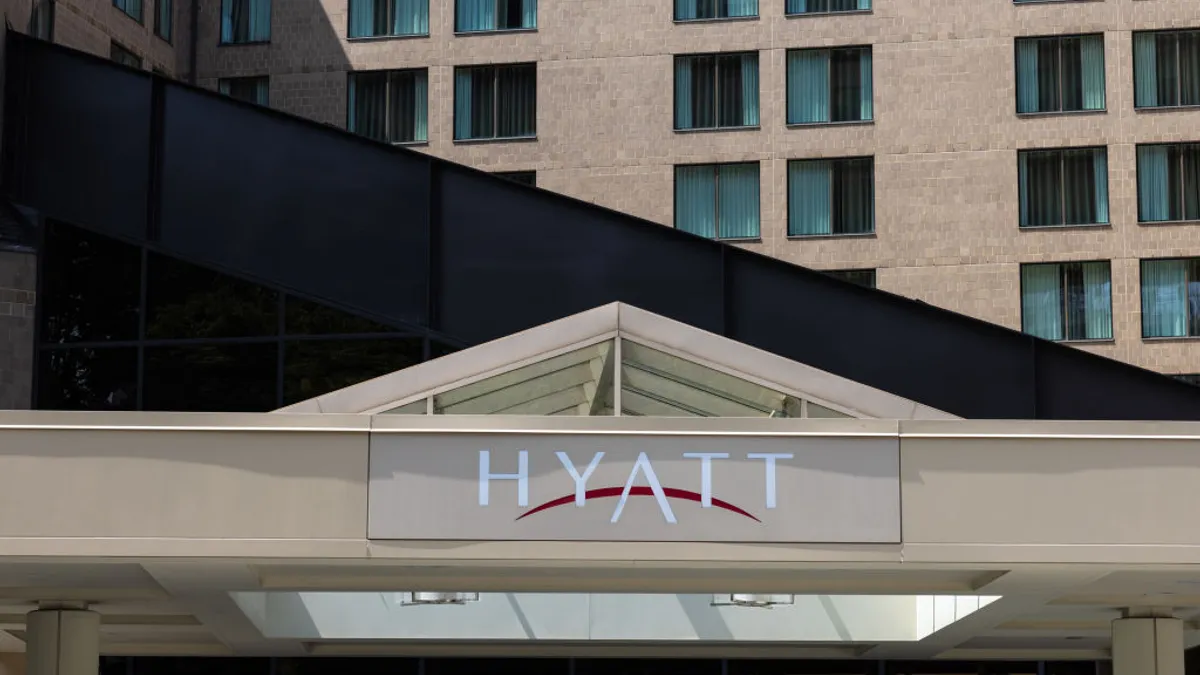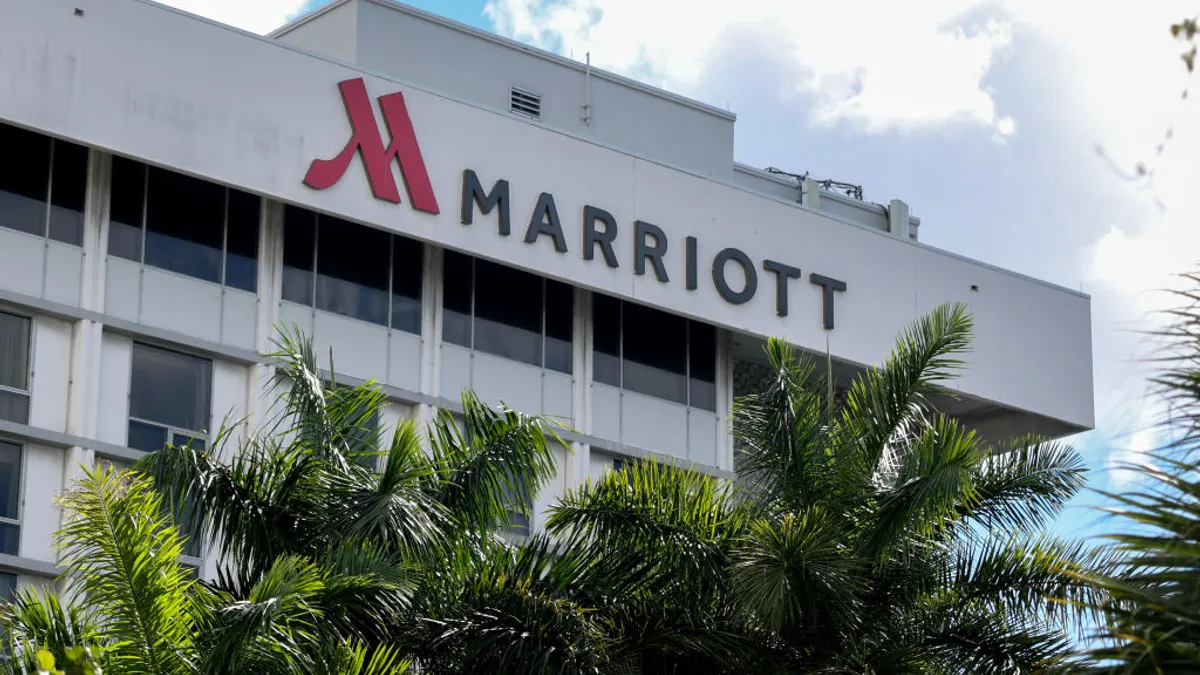Sonder announced bankruptcy this week, cementing that the beleaguered apartment-style accommodations provider — which The Wall Street Journal once called “Airbnb’s billion-dollar competitor” — couldn’t hack it in hospitality.
Even with the backing of industry giant Marriott International, Sonder wasn’t able to shake the financial troubles that ultimately led to its demise.
Last year, Marriott entered into a long-term strategic licensing agreement with Sonder to create the new collection Sonder by Marriott Bonvoy. The partnership was slated to add Sonder’s existing portfolio of more than 9,000 rooms to Marriott’s system, as well as add a pipeline of approximately 1,500 Sonder rooms.
However, Marriott cut that 20-year partnership short on Sunday, “due to Sonder’s default,” the hotel company said in a release. By midday Monday, Sonder announced it would initiate a Chapter 7 liquidation of its U.S. business and insolvency proceedings in the international countries where it operates.
Sonder abruptly ceased operations, leaving guests stranded and industry professionals surprised. In the aftermath, Hotel Dive takes a closer look at what led to Sonder’s end and where Marriott stands now.
Sonder sinks after challenges
Sonder announced it would file for bankruptcy after facing “severe financial constraints” that arose, in part, from prolonged challenges of integrating its systems and booking arrangements with Marriott, Sonder said in a release.
The integration was slated to benefit both companies, particularly providing relief to Sonder stakeholders amid the company’s ongoing legal and operational challenges. However, significant complications made it a not-so-perfect partnership, Sonder Interim Chief Executive Officer Janice Sears said in the release.
“Unfortunately, our integration with Marriott International was substantially delayed due to unexpected challenges in aligning our technology frameworks, resulting in significant, unanticipated integration costs, as well as a sharp decline in revenue arising from Sonder’s participation in Marriott’s Bonvoy reservation system,” Sears said. “These issues persisted and contributed to a substantial and material loss in working capital.”
A Marriott spokesperson told Hotel Dive Wednesday that Marriott “does not agree with the characterizations that are expressed in Sonder’s press release.”
In the month preceding Marriott’s termination, Sonder faced serious financial challenges outlined in several filings with the Securities and Exchange Commission, reviewed by Hotel Dive. In an Oct. 14 SEC filing, Sonder stated it had “a history of net losses and negative operating cash flows and expects to continue to incur additional losses in the future.”
The company added that “liquidity may be insufficient to meet its obligations for at least one year from the date of issuance of these financial statements, which raises substantial doubt about the Company’s ability to continue as a going concern.”
An Oct. 24 SEC filing shows that Sonder faced delisting from Nasdaq after failing to maintain a minimum market value of publicly held shares of $15 million. Amid these ongoing problems, Marriott kept Sonder afloat. But that ended Sunday.
Despite “comprehensive efforts to evaluate all financing and other strategic alternatives, including a sale of its business and operations,” Sonder was unable to secure additional liquidity after Marriott’s termination, per Sonder’s release. The company’s board of directors subsequently decided to pursue bankruptcy and complete an immediate wind-down of operations.
Sonder had previously faced financial and legal difficulties before partnering with Marriott. In March 2024, the company delayed its fourth-quarter and full-year 2023 financial results after identifying “accounting errors” in its 2022 and 2023 statements.
The postponement caused Sonder’s stock price to fall sharply, and a class action lawsuit was later filed against the company on behalf of its investors, who claimed Sonder had provided false and/or misleading statements that resulted in monetary losses.
Where Marriott stands
Sonder’s eventual demise was not necessarily surprising, Brad Busby, executive vice president of RREAF Holdings’ hospitality team, told Hotel Dive. However, what was unexpected was the speed of the company’s shutdown.
“Marriott tends to be very deliberate and methodical, and the fact that many Sonder guests were left stranded and asked to leave their accommodations immediately was surprising,” Busby said. “I can’t remember the last time something like this happened.”
In a Sunday release, Marriott said its “immediate priority is supporting guests currently staying at Sonder properties and those with upcoming reservations … to address their reservation and booking needs.”
Meanwhile, hospitality providers including Landing and Canada’s SoHo Residences have offered support for displaced Sonder guests this week. The reservation disruptions come amid an already challenged travel environment due to the U.S. federal government shutdown.
The failed Sonder deal will remove a significant number of rooms from Marriott’s system, with the company now projecting net rooms growth for full-year 2025 to approach 4.5%, lower than its previous forecast of approaching 5%. As of Sept. 30, Marriott had 7,700 Sonder rooms in its system across 140 properties, the company spokesperson said.
“Marriott will be fine coming off the Sonder separation,” Busby said. However, if the company tries to capture similar short-term rental demand through another venture in the future, “there should be more due-diligence to ensure entities are more closely aligned before any deals are signed.”
The problem with expansion through acquisition and partnerships, Busby said, is that there often seems to be gaps in brand alignments. “Marriott guests expect a standard and consistency that comes with their core products and services,” he said. “It just always seemed to me to be difficult for a company like Sonder to achieve that.”
Chris Kelsey, president of Dart Interests, the developer behind Evermore Orlando Resort, expressed a similar sentiment, telling Hotel Dive that a major challenge hotel companies face when partnering with short-term rental operators “is maintaining brand consistency across non-traditional accommodations.”
“Brand alignment is everything,” Kelsey said. “When a hotel company looks to partner with or acquire a short-term rental brand, the first step is understanding the core ethos of each to ensure that both brands are aligned.
“Consistency across service, amenities, and guest experiences ensures that when someone books a stay under a brand they trust, their expectations are met,” Kelsey continued.
For hotel companies, including Marriott, residential hospitality provides a clear opportunity to diversify offerings and capture travelers who want the comfort and reliability of a hotel but the flexibility, privacy and scale of a luxury vacation home, according to Kelsey. Therefore, residential hospitality will definitely be an area hotel companies continue to play in, he said.
Marriott is “still excited about the other brands we have in the extended stay and apartment-style space,” the Marriott spokesperson said.
According to Kelsey, “The key will be combining consistency, loyalty programs, and integrated service with experiences that foster connection — something traditional short-term rentals don’t consistently provide at this time.”


















